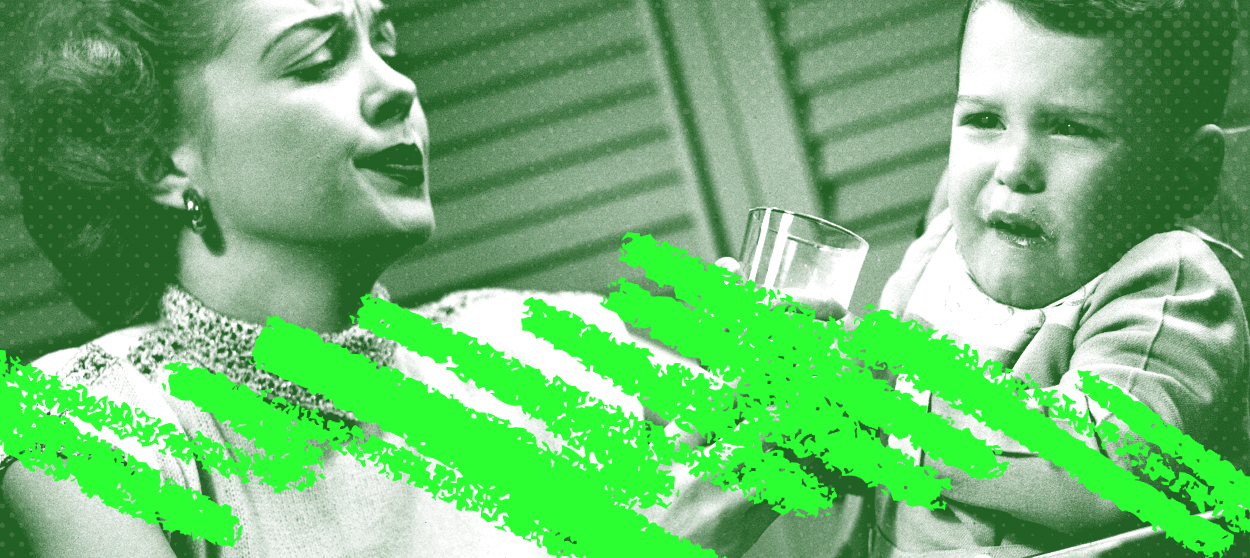Why Parenthood was the perfect antidote to a cynical age
This softy of a show spoke to an oft-forgotten truth about family


A free daily email with the biggest news stories of the day – and the best features from TheWeek.com
You are now subscribed
Your newsletter sign-up was successful
Nice guys have never had it so bad — at least on TV.
Prestige television, i.e. the series we consider smart, is filled with people of questionable morals, anti-heroes like House of Cards' Francis Underwood or Mad Men's Don Draper. But likeable TV characters — ones you could be friends with, to quote a popular debate in literary circles? Not so much.
This has made Parenthood such a guilty pleasure for me — with an emphasis on pleasure.
The Week
Escape your echo chamber. Get the facts behind the news, plus analysis from multiple perspectives.

Sign up for The Week's Free Newsletters
From our morning news briefing to a weekly Good News Newsletter, get the best of The Week delivered directly to your inbox.
From our morning news briefing to a weekly Good News Newsletter, get the best of The Week delivered directly to your inbox.
The NBC show, which had its series finale last night, tells the story of the Bravermans, a Berkeley family challenged over the last five years by adoption, breast cancer, autism, failing businesses, break-ups, abortions, car accidents, and a smattering of other ratings boosters and season finale hooks. And all this melodrama wasn't even the least believable aspect of the show. The craziest part was that a family of this size — two grandparents, four kids, plus spouses, partners, and grandkids — all lived in the same city, liked one another, and managed to get together on what seemed like a weekly basis.
It may sound like sentimental fantasy, but the characters' mutual affection arrived at a higher truth: Humans really are better together. It's a lesson that could never have existed in a show filled with unlikable characters. It's the reason I and so many loved this softy of a show.
Here's the thing about unlikable characters. By definition, they are people who struggle with human connection, outsiders who fail to tap into the emotional and moral customs of their times. Because of this, they miss out on the power such connections have to change us.
If there's a quest for knowledge at the heart of the hero's journey, then buried in the psyche of all these anti-heroes is the belief that understanding is best arrived at on one's own. Other people, especially those clowns and prudes we are related to through blood or vows, only contaminate our quests to truly get to know ourselves and the world around us. What Parenthood showed us was that real connections to other people are a completely legitimate way to arrive at such knowledge.
A free daily email with the biggest news stories of the day – and the best features from TheWeek.com
Self-discovery on the show was not limited to the young ones. Of the adult Braverman children, Julia struggled to balance career and home, Sarah with settling down, Adam with his job and autistic son, and Crosby with becoming someone others can rely on — and all of these instances were set to episode-concluding montages overlaid with a sad indie song. (You know you cried. I often wept.) Each had a journey of his or her own, and managed to find their way through them not in spite of their kids, partners, sisters, brothers or parents, but because of them. Sometimes this was a product of love and support, and other times it had to do with the self-honesty that occurs when we are surrounded by those who know us best.
In Parenthood as in life, close families serve as mirrors, and in them we see our full selves reflected, our narcissisms, denials, vanities, and shame. We don't have to change, but the reflection we see is impossible to deny.
In a 1975 interview, Leonard Cohen, who wasn't too good at marriage and repeatedly sought personal growth through solo endeavors like meditation and artistic creation, said this:
I think marriage is the hottest furnace of the spirit today. Much more difficult than solitude, much more challenging for people who want to work on themselves. It's a situation in which there are no alibis, excruciating most of the time … but it's only in this situation that any kind of work can be done.
This is what Parenthood taught us about parenthood and family. Being likeable and having meaningful relationships are not always a obstacles to the path to enlightenment. Instead, they often are the path, as long as we allow them to be.
Elissa Strauss writes about the intersection of gender and culture for TheWeek.com. She also writes regularly for Elle.com and the Jewish Daily Forward, where she is a weekly columnist.
-
 Political cartoons for February 16
Political cartoons for February 16Cartoons Monday’s political cartoons include President's Day, a valentine from the Epstein files, and more
-
 Regent Hong Kong: a tranquil haven with a prime waterfront spot
Regent Hong Kong: a tranquil haven with a prime waterfront spotThe Week Recommends The trendy hotel recently underwent an extensive two-year revamp
-
 The problem with diagnosing profound autism
The problem with diagnosing profound autismThe Explainer Experts are reconsidering the idea of autism as a spectrum, which could impact diagnoses and policy making for the condition
